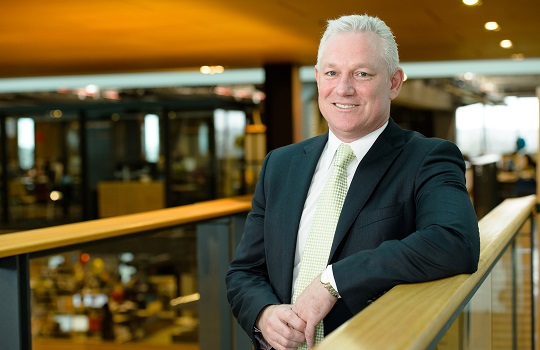
Sovereign’s CEO sheds light on why the insurance sector needs to become more agile.
Until recently, the world “agile” was owned by the software industry. Agile meant being responsive – delivering solutions to problems as they emerge, and continuously adapting to meet ever-changing opportunities. Lately, the term has been used by the fashion industry – specifically ‘fast fashion’ companies, such as UK high street retailer Zara.
In the age where customer demand is a key driver of influence, brands like Zara have overhauled their production models. They are no longer planning their winter collections in the previous spring. They have their designers, factories and distributors on standby to get new products on the shelves within weeks, based on what is currently trending in the market. It is a great model in theory, but how can those of us with traditionally more sedate products, such as insurance, harness the advantages of agility to better serve our customers?
Across all consumer-facing industries, customer expectations and needs are changing rapidly, as are the marketplaces in which they do their business. In the financial services industry, we have the additional uncertainty of meeting ever-stricter legislative requirements. The challenge is to find a way to build an agile business which is ready to meet change. In insurance, much of the answer is about examining our delivery models – engaging with consumers in the places they inhabit and offering the services they need, in a form they can easily access. It is about providing for our customers’ long-term needs and maintaining a stable core business, while being responsive to changing needs as well as new engagement and delivery opportunities. A recent example is Sovereign’s international health cover. We know a lot of our customers move between Australia and New Zealand, so we adapted the product so they can take their policy with them. We did it quickly, by thinking through what customers really wanted, working with Australian institutions and utilising existing channels, which required very little technological input.
To change the future of New Zealand’s health and financial security, it is up to us to continue innovating and developing tools, services and products that meet the needs of a constantly changing market. This includes developing new ways for customers to interact with us and our partners. We recently experienced great success in creating an online claims process for our health products and will be looking at how to continue innovating in the future to give our customers what they want.
We do not know how our customers will access our services in ten years’ time, or how their needs will change, but there is something we can have control over: our ability to adapt in order to meet those needs. We can do this by creating an agile engine that can respond in any circumstances and by harnessing the talents and insights of our staff and by pairing those with innovative technology. Real-time analytics will give us the ability to be more responsive to customers, improve turnaround times and customise the customer experience. It also improves productivity in the workplace and makes us more effective. We will also address how complicated life and health insurance has become for customers. Our future is all about simplicity, flexibility and the ability to deliver market leading solutions to meet the future needs of customers.
Ultimately, the success of our approach is measured by our customers and our shareholders. If customers believe Sovereign is making a difference in their lives, and our shareholders feel we are making a difference to the business, I call that being successful. I think Sovereign has the added advantage of being based in New Zealand. One of the biggest things I have noticed, since moving here from Australia two years ago, is the culture of innovation in this country. Out of necessity, New Zealand has been practising agility long before the technology industry reinvented the word. There is an innate understanding that change is a certainty and, because it is smaller and younger, New Zealand has had to be agile and innovative to survive and succeed – across business, government, and even sport. Perhaps it goes back to that famous line of Kiwi scientist Sir Ernest Rutherford: “We do not have the money, so we have to think.”
